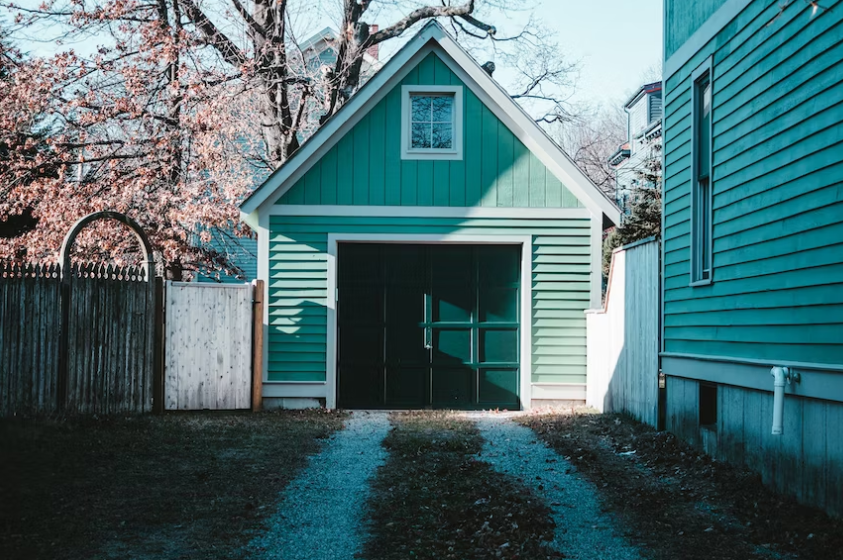Your garage door is vital to your home, providing security and convenience. However, if it starts making unusual noises, addressing the issue promptly with repair or a new garage door and installation is essential. These noises can indicate underlying problems that, if left unattended, may lead to more extensive and expensive repairs.
Does My Garage Door Need Professional Repair?
While some issues can be resolved through DIY maintenance, it’s essential to consult a professional for complex or extensive repairs to maintain the safety and functionality of your garage door. Regular maintenance and timely repairs can extend the lifespan of your garage door and keep it operating smoothly for years to come. In some cases a new garage door and installation may be necessary.
15 Garage Door Noises You Can’t Ignore
1. Grinding Noise
If your garage door produces a grinding noise when it opens or closes, it could be due to worn-out or damaged rollers. Rollers can wear down over time, causing friction against the tracks, which results in that grinding sound.
Diagnosis: Inspect the rollers for signs of wear or damage. If you notice worn or misshapen rollers, they may need to be replaced.
2. Squeaking Sound
A squeaking noise typically indicates the need for lubrication. Over time, the various moving parts of your garage door, such as hinges and springs, can become dry and create friction, resulting in that annoying squeak.
Diagnosis: Apply a high-quality garage door lubricant to the moving parts, including hinges, springs, and rollers. This should resolve the squeaking noise.
3. Rattling Noise
Rattling noises may be caused by loose or damaged components. Check for loose nuts, bolts, or screws, particularly in the door’s hardware or tracks. Loose parts can vibrate during operation, creating a rattling sound.
Diagnosis: Tighten any loose hardware you find. If the noise persists, inspect the tracks for damage or misalignment.
4. Thumping or Banging
A loud thumping or banging sound can be alarming. It often occurs when the garage door reaches the end of its travel and abruptly stops. This noise can be a sign of damaged or worn-out springs or cables.
Diagnosis: Check the springs and cables for signs of damage or wear. A professional should replace them if they appear stretched or broken.
5. Clicking Noise
Clicking noises may result from a malfunctioning garage door opener. If the opener is struggling or if there’s an issue with the gear mechanism, it can produce a series of clicks.
Diagnosis: Examine the garage door opener for any visible issues. If you need more clarification, it’s best to consult a professional for a thorough inspection and potential opener replacement.
6. Screeching Sound
A screeching noise is often associated with a damaged or misaligned track. If the garage door’s rollers are not moving smoothly along the track, it can create a high-pitched screeching sound.
Diagnosis: Check the tracks for any visible damage, obstructions, or misalignment. If you identify issues, addressing them promptly is crucial to prevent further damage.
7. Hissing or Whistling
Hissing or whistling sounds can occur if there are gaps or openings in the garage door or around its seals. These noises are typically due to air or moisture entering the garage.
Diagnosis: Inspect the garage door for visible gaps or openings, and ensure that weatherstripping and seals are intact and in good condition.
8. Popping Noise
Popping sounds may be caused by temperature fluctuations. As the materials expand and contract with temperature changes, they can create popping or cracking noises.
Diagnosis: While you can’t prevent temperature-related noises entirely, maintaining proper insulation and regular lubrication can help minimize these sounds.
9. Clunking Sound
A clunking noise can occur if the garage door’s tracks are misaligned or if the rollers are hitting obstructions or debris along the track.
Diagnosis: Check the tracks for alignment and clear any debris or obstructions. If the tracks are severely misaligned, it’s best to consult a professional for adjustments.
10. Whirring Noise
A consistent whirring noise may indicate that the garage door opener’s motor is straining. This could be due to a worn-out motor or a lack of maintenance.
Diagnosis: Inspect the opener’s motor for visible issues, and make sure it’s adequately lubricated. If the noise persists, the motor may require replacement.
Contact Adams Door Systems today
In conclusion, a noisy garage door often indicates something is amiss. Diagnosing the cause of the noise is essential to prevent further damage and ensure your garage door’s smooth and safe operation. Contact Adams Door Systems today for all your repair needs. Our professional team is there for you and your garage door needs.







